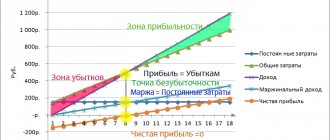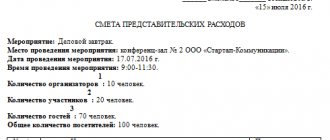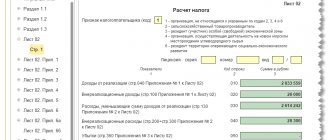When a person dies, his family and friends need to organize a funeral quickly. This process involves not only paperwork, but also considerable material costs. To help citizens, legislators provided state burial benefits. However, the size of these payments is not able to cover all costs.
By providing the testator with a decent funeral, his relatives can receive compensation from the inheritance. This possibility is specified in paragraph 1 of Article 1174 of the Civil Code of the Russian Federation. To do this, the heir must obtain a notary's decree on reimbursement of expenses for the testator's funeral.
Features of reimbursement
Relatives of the testator may receive compensation for the following expenses:
- funeral organization;
- payment for burial place;
- protection of the hereditary mass;
- inheritance management;
- execution of a will.
All of the above costs are compensated by the inheritance. In addition, the relatives of the deceased may receive compensation for expenses caused by the dying illness of the testator. These include purchasing medications, paying for medical procedures, etc.
Reimbursement of costs occurs according to the following rules:
- The person who paid for the funeral receives compensation before paying the debts of the testator's creditors.
- If the heirs have already managed to accept the testator’s property, then claims for reimbursement of expenses are presented to each of them. If the successors did not have time to accept the inheritance, then the requirements are presented to the executor of the will (in his absence, the decision on the allocation of compensation from the inheritance mass is made by a notary).
- First of all, expenses caused by the illness and death of a citizen are subject to compensation, then expenses incurred as a result of ensuring the protection of the hereditary mass are compensated. Expenses associated with the execution of a will are reimbursed last.
- If the testator has bank accounts, then financial organizations are obliged to issue funds to the relatives of the deceased in the presence of an appropriate notarial decree. This also includes those deposits that are alienated by testamentary disposition.
- Any assets of the testator can be used to pay for the funeral.
- The maximum amount issued by the bank is 100 thousand rubles.
- Compensation can be received not only by heirs, but also by third parties involved in organizing the funeral of a deceased citizen.
Another comment on Art. 1174 of the Civil Code of the Russian Federation
1. The commented article regulates the procedure for reimbursement of expenses incurred before or after the death of the testator, which are subject to reimbursement from his property until the claims of the deceased’s creditors are satisfied.
The article names several types of expenses subject to reimbursement, which can be combined into several groups: expenses caused by the dying illness of the testator; expenses for his dignified funeral; expenses for the protection and management of the inheritance and expenses for the execution of the will.
It does not matter who carried out these expenses, with the exception of expenses of the third group, which are made by persons specified in the law.
Expenses caused by the decedent's dying illness may include expenses for medications, medical care, care expenses, etc. It should be borne in mind that only necessary expenses are subject to compensation in accordance with the commented article. In the event of a dispute, the question of the need for certain expenses, as well as their justified amount, at the request of the parties, can be decided by the court.
In addition, the commented article directly states that those expenses that were caused by a near-death illness are subject to reimbursement, which, in particular, can be determined by the conclusion of doctors. However, the use of the concept of “dying illness” does not allow us to definitely answer some questions, including the amount of compensation. It is not clear, for example, whether a chronic illness from which the testator has suffered for a long time can be considered pre-mortem? To what extent can the costs of medical care and care for a sick testator be reimbursed to the person who incurred these expenses, if the testator, being the owner of certain property, but not having sufficient funds, was actually a dependent of this person, and the amount of compensation is limited only by the cost of the inheritance? It seems that the answers to these questions will be given by judicial practice.
In the commented article, the amount of expenses for a decent funeral is not limited by anything other than the cost of the inheritance itself. However, such a situation would entail an inevitable clash of interests of the heirs, creditors of the deceased and persons paying funeral expenses. Therefore, apparently, the court will apply the principle of reasonableness when determining the permissible amount of such expenses.
The commented article establishes a limit on the amounts issued by the bank for funerals in the amount of 100 minimum wages established on the day of application (clause 3 of the commented article). This limitation only applies to funeral expenses. Other expenses may apply to the extent of the estate.
Limitations on the amounts that can be issued by the bank for a funeral also do not apply to expenses exceeding these amounts that are actually spent on the funeral and are subject to reimbursement from the cost of the inheritance.
The protection of inheritance (if established) and its management are also associated with certain costs on the part of the obligated persons. Such expenses are also subject to compensation from the value of the inheritance, as well as expenses that may arise in connection with the execution of the will.
This is interesting: Division of debts of the testator 2021
2. Interested parties have the right to present their claims for reimbursement of expenses at any time, both after the acceptance of the inheritance by the heirs and before. Moreover, if the inheritance has not yet been accepted by the heirs, the interested person has the right to contact the executor of the will or the notary at the place where the inheritance was opened to satisfy his claims without the participation of future heirs.
If it is necessary to incur expenses for the testator's funeral, they can, by decision of the notary, be made immediately at the expense of the estate.
If the inheritance has already been accepted by the heirs, each of them is liable for the specified debts within the limits of their part of the inheritance, but in equal proportion with the other heirs. It does not matter from what amounts the heirs reimburse expenses. If the heirs do not have the necessary or sufficient funds, then the testator’s property is subject to sale. Expenses are reimbursed from proceeds. If the inheritance has not yet been accepted, the specified expenses are reimbursed from it and the remaining property is transferred to the heirs.
At the same time, the law guarantees the receipt of the sums spent from the value of the inheritance, even if it is burdened with debts. The law establishes the order of reimbursement of expenses.
The amount of expenses caused by the illness and funeral of the testator must first be reimbursed from the value of the inheritance. Despite the fact that the legislation provides for the payment of social benefits for funerals, and also establishes a list of funeral services provided free of charge, the commented article does not provide an advantage for reimbursement of two types of expenses.
Secondly, claims for reimbursement of expenses for the protection and management of the inheritance are satisfied from the testator’s property; third - the costs of executing the will. The claims of other creditors may be satisfied from the remaining value of the inheritance.
3. The amounts of money and funds in deposits and accounts in banks and (or) other credit organizations belonging to the testator may be spent primarily for these purposes.
The commented article sets out special rules on the inheritance of funds in deposits and accounts.
Banks, in whose deposits and accounts there are funds from the inherited property, are entrusted with the obligation, by decree of the notary, to issue them to the heir or the person specified in the decree to pay funeral expenses within the limits of 100 minimum wages, if the heirs have not yet entered into inheritance rights.
If there is a will (including a testamentary disposition) of funds in deposits or in any other bank accounts, the heir to these funds, who has not yet assumed his rights, has the right at any time to receive the specified funds for the funeral within the limits of 100 minimum wages.
When does reimbursement occur?
When property is alienated by law or by will, the distribution of the inheritance occurs six months after the death of the testator. When planning to receive compensation from an inheritance, a citizen does not have to wait for the issuance of notarial certificates. A claim for compensation for funeral expenses is made on the basis of one of the following documents:
- notary decisions;
- testamentary disposition written by the testator.
If the inheritance was declared escheat, then the costs of organizing the funeral are compensated from the state budget. The applicant must document his expenses.
Reimbursement for funeral expenses
- payment for the procedure for state registration of the fact of transfer of real estate, which is included in the list of inheritance. The transfer is carried out in temporary trust management;
- payment of expenses incurred for the services of the manager.
Funds that can be used to reimburse expenses Based on clause 2 of Art. 1174 of the Civil Code reimbursement of all costs listed in paragraph 1 of Art. 1174 of the Civil Code, can be carried out not only after the transfer of property to the heirs, but also before that. The costs may be covered by the executor of the will or the heir of the deceased.
Receiving funds by notarial decree
To receive compensation, a citizen must do the following:
- Contact the notary's office, presenting documents proving the expenses incurred. Next, the citizen writes a statement. It indicates the full name and passport details of the applicant, as well as his residential address and the amount of compensation (in numbers and in words).
- The notary examines the submitted document and issues a resolution to issue funds to reimburse expenses.
- With the received paper, the applicant contacts the bank and receives compensation.
What documents are required to receive compensation?
When contacting a notary, the applicant must present the following documents:
- passport of a citizen of the Russian Federation;
- death certificate of the testator;
- certificate from the last place of residence of the deceased;
- papers confirming payment for the funeral;
- testamentary disposition (if any).
How to write an application
The document is drawn up in a standard form. The form to fill out is issued by a notary. The application must include the following information:
- Title of the document;
- applicant details;
- the essence of the appeal;
- amount of compensation;
- the name of the bank in which the testator’s money is located;
- bank account details;
- date and signature of the applicant.
Receiving funds by testamentary disposition
Regarding Article 1128 of the Civil Code of the Russian Federation, each owner of a bank account can transfer his money to third parties by drawing up a testamentary disposition. This document has several differences from traditional wills. They are as follows:
- the testamentary disposition is certified not by a notary, but by an employee of a financial institution;
- the document applies only to accounts opened in a specific bank;
- a citizen who organized the funeral of the testator can receive compensation of up to 100 thousand rubles under a testamentary disposition (money is withdrawn from the deceased’s account).
To receive funds for a funeral, the applicant must contact the bank by submitting the following documents:
- testamentary disposition;
- death certificate of the testator;
- documents confirming expenses.
To receive compensation, the applicant does not have to be named in the testamentary disposition. The main thing is to prove that the testator paid for the funeral.





